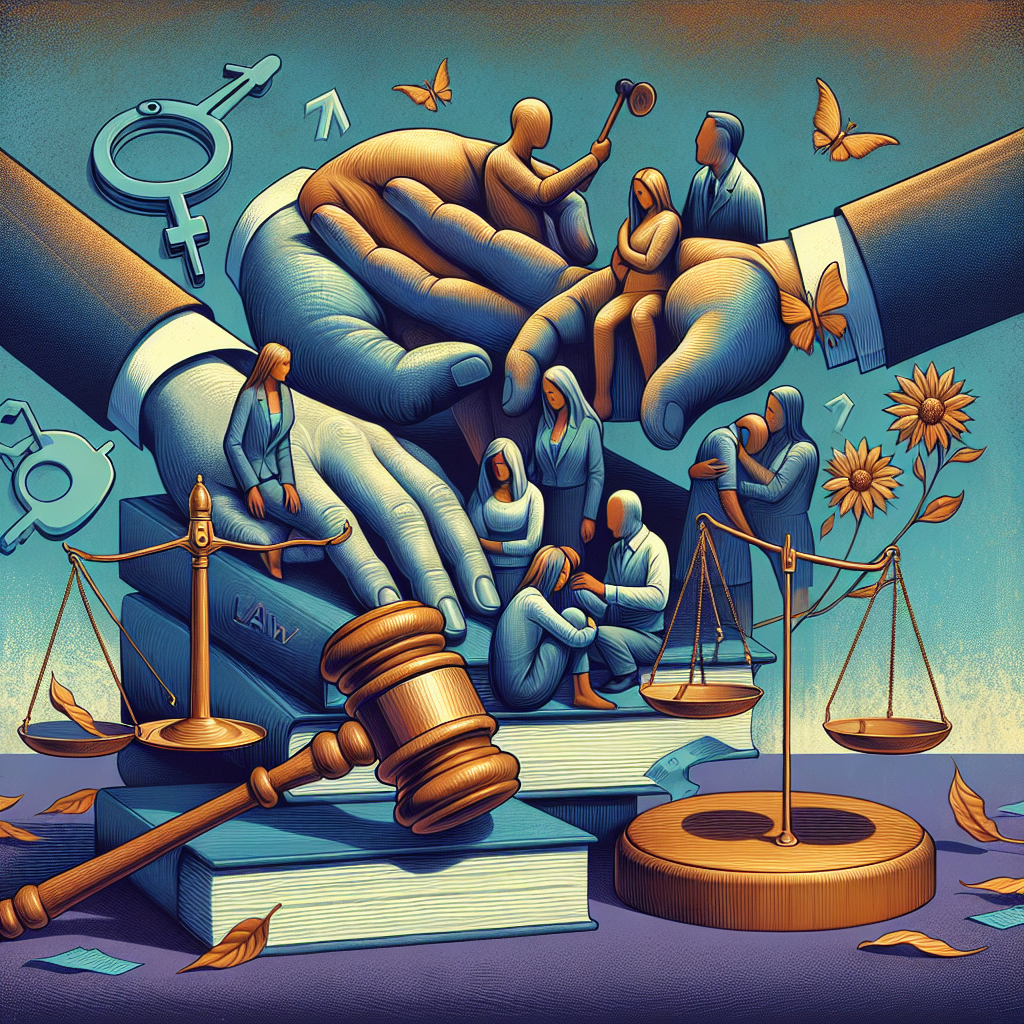Legal Considerations in Abuse-Related Divorces
Uncovering the Legal Implications of Abuse in Divorce
The Impact of Abuse in Divorce Proceedings
Divorce is already a difficult and emotionally charged process, but when abuse is involved, it can become even more complicated and challenging. Abuse, whether physical, emotional, or psychological, can have a significant impact on the outcome of a divorce case. Not only can it affect the division of assets and child custody, but it can also have legal consequences for the perpetrator of the abuse.
Understanding the Different Types of Abuse
Before delving into the legal considerations of abuse-related divorces, it’s essential to understand the different types of abuse that can occur in a marriage. Physical abuse is perhaps the most well-known form, involving physical harm or violence towards a spouse. Emotional abuse, on the other hand, is harder to detect and may involve manipulation, verbal attacks, and control tactics. Psychological abuse can take a toll on a victim’s mental well-being and often involves gaslighting or threatening behavior. Any form of abuse can have a detrimental effect on a marriage and can play a significant role in divorce proceedings.
The Role of Evidence in Proving Abuse
In a divorce case involving abuse, evidence plays a crucial role in proving the abuse occurred. This evidence can take many forms, including police reports, medical records, witness statements, and even photographs. It’s essential to gather as much evidence as possible to support claims of abuse in a divorce case, as it can significantly impact the outcome. Without evidence, it can be challenging to prove the abuse occurred, and the court may not take it into consideration when making decisions.
The Importance of Seeking Legal Assistance
Given the complexities of abuse-related divorces, it’s crucial to seek legal assistance from a divorce lawyer who has experience handling these types of cases. A skilled divorce lawyer can help you understand your rights, gather evidence, and navigate the legal process. They can also provide emotional support and guidance during this challenging time. It’s never recommended to handle an abuse-related divorce without the help of a lawyer, as it can have severe consequences for both parties involved.
Navigating Protective Orders and Restraining Orders
One of the first steps to take when dealing with abuse in a divorce is to obtain a protective order or restraining order. These legal orders aim to protect the victim of abuse by prohibiting the abuser from contacting or coming near them. Protective orders can also include provisions for child custody, financial support, and other matters. A divorce lawyer can assist in obtaining these orders and ensuring they are enforced throughout the divorce proceedings.
Addressing Abuse in Child Custody Cases
Child custody is often one of the most contentious issues in a divorce. In abuse-related divorces, the court will take into consideration any evidence of abuse when making decisions about custody. The safety and well-being of the child will always be the top priority, and if abuse has been proven, it can significantly impact the custody arrangement. In some cases, the court may even grant sole custody to the non-abusive spouse or limit visitation rights of the abusive parent.
The Influence of Abuse on Spousal Support
In some states, abuse can also play a role in determining spousal support or alimony payments. If the victim of abuse has been financially dependent on the abuser, the court may order the abusive spouse to provide financial support even after the divorce. Conversely, if the abusive spouse has a history of domestic violence, this may impact their ability to claim spousal support from the victim.
Potential Consequences for Perpetrators of Abuse
In addition to legal and financial consequences, there may also be criminal consequences for the perpetrator of abuse in a divorce case. Depending on the severity and type of abuse, the abuser may face charges for domestic violence, assault, or other crimes. This can have a significant impact on the outcome of a divorce case, as well as the abuser’s future.
Protecting Victims of Abuse in the Courtroom
It’s not uncommon for perpetrators of abuse to continue their behavior in the courtroom, using intimidation or manipulation tactics to try to control the situation. This can make the divorce process even more challenging for the victim. However, there are measures in place to protect abuse victims in the courtroom, such as providing a separate entrance and waiting area, allowing remote testimony, and prohibiting the abuser from being present during the court proceedings.
The Future of Addressing Abuse in Divorce Cases
While there have been significant strides in addressing abuse in divorce cases, there is still progress to be made. It’s essential to continue advocating for victims of abuse and holding perpetrators accountable for their actions. It’s also crucial for the court system to continue providing resources and support for those involved in an abuse-related divorce to ensure a fair and just outcome.




